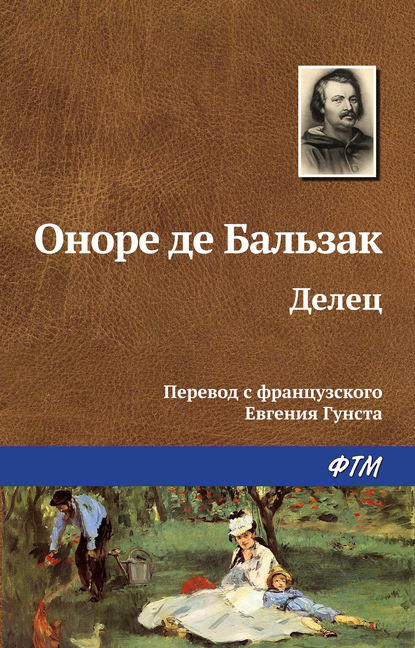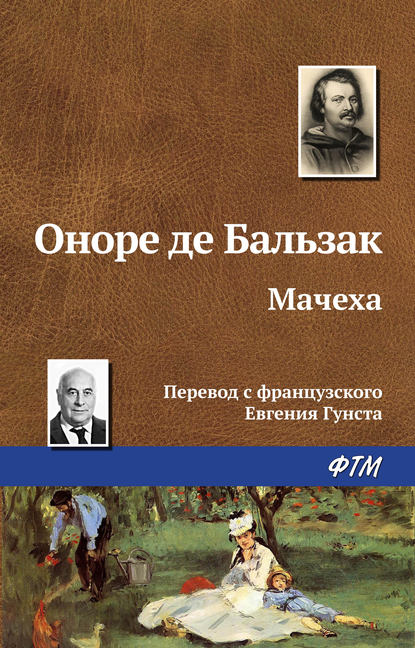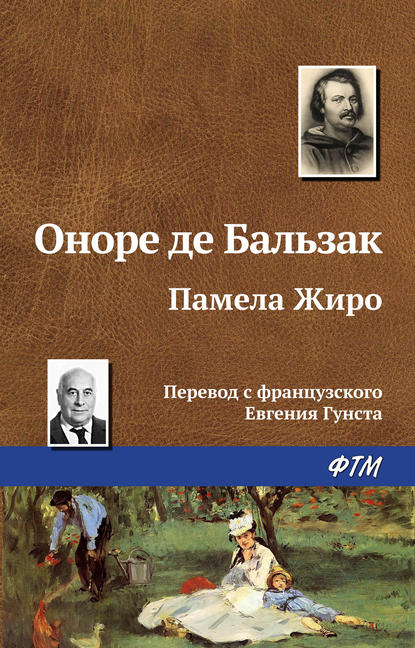
Полная версия
The Country Doctor
“The bath is doing no good,” he said, shaking his head; “let us put him to bed again.”
He lifted the inert mass himself, and carried him across to the truckle-bed, from whence, no doubt, he had just taken him. Carefully he laid him at full length, and straightened the limbs that were growing cold already, putting the head and hand in position, with all the heed that a mother could bestow upon her child.
“It is all over, death is very near,” added Benassis, who remained standing by the bedside.
The old woman gazed at the dying form, with her hands on her hips. A few tears stole down her cheeks. Genestas remained silent. He was unable to explain to himself how it was that the death of a being that concerned him so little should affect him so much. Unconsciously he shared the feeling of boundless pity that these hapless creatures excite among the dwellers in the sunless valleys wherein Nature has placed them. This sentiment has degenerated into a kind of religious superstition in families to which cretins belong; but does it not spring from the most beautiful of Christian virtues – from charity, and from a belief in a reward hereafter, that most effectual support of our social system, and the one thought that enables us to endure our miseries? The hope of inheriting eternal bliss helps the relations of these unhappy creatures and all others round about them to exert on a large scale, and with sublime devotion, a mother’s ceaseless protecting care over an apathetic creature who does not understand it in the first instance, and who in a little while forgets it all. Wonderful power of religion! that has brought a blind beneficence to the aid of an equally blind misery. Wherever cretins exist, there is a popular belief that the presence of one of these creatures brings luck to a family – a superstition that serves to sweeten lives which, in the midst of a town population, would be condemned by a mistaken philanthropy to submit to the harsh discipline of an asylum. In the higher end of the valley of Isere, where cretins are very numerous, they lead an out-of-door life with the cattle which they are taught to herd. There, at any rate, they are at large, and receive the reverence due to misfortune.
A moment later the village bell clinked at slow regular intervals, to acquaint the flock with the death of one of their number. In the sound that reached the cottage but faintly across the intervening space, there was a thought of religion which seemed to fill it with a melancholy peace. The tread of many feet echoed up the road, giving notice of an approaching crowd of people – a crowd that uttered not a word. Then suddenly the chanting of the Church broke the stillness, calling up the confused thoughts that take possession of the most sceptical minds, and compel them to yield to the influence of the touching harmonies of the human voice. The Church was coming to the aid of a creature that knew her not. The cure appeared, preceded by a choir-boy, who bore the crucifix, and followed by the sacristan carrying the vase of holy water, and by some fifty women, old men, and children, who had all come to add their prayers to those of the Church. The doctor and the soldier looked at each other, and silently withdrew to a corner to make room for the kneeling crowd within and without the cottage. During the consoling ceremony of the Viaticum, celebrated for one who had never sinned, but to whom the Church on earth was bidding a last farewell, there were signs of real sorrow on most of the rough faces of the gathering, and tears flowed over the rugged cheeks that sun and wind and labor in the fields had tanned and wrinkled. The sentiment of voluntary kinship was easy to explain. There was not one in the place who had not pitied the unhappy creature, not one who would not have given him his daily bread. Had he not met with a father’s care from every child, and found a mother in the merriest little girl?
“He is dead!” said the cure.
The words struck his hearers with the most unfeigned dismay. The tall candles were lighted, and several people undertook to watch with the dead that night. Benassis and the soldier went out. A group of peasants in the doorway stopped the doctor to say:
“Ah! if you have not saved his life, sir, it was doubtless because God wished to take him to Himself.”
“I did my best, children,” the doctor answered.
When they had come a few paces from the deserted village, whose last inhabitant had just died, the doctor spoke to Genestas.
“You would not believe, sir, what real solace is contained for me in what those peasants have just said. Ten years ago I was very nearly stoned to death in this village. It is empty to-day, but thirty families lived in it then.”
Genestas’ face and gesture so plainly expressed an inquiry, that, as they went along, the doctor told him the story promised by this beginning.
“When I first settled here, sir, I found a dozen cretins in this part of the canton,” and the doctor turned round to point out the ruined cottages for the officer’s benefit. “All the favorable conditions for spreading the hideous disease are there; the air is stagnant, the hamlet lies in the valley bottom, close beside a torrent supplied with water by the melted snows, and the sunlight only falls on the mountain-top, so that the valley itself gets no good of the sun. Marriages among these unfortunate creatures are not forbidden by law, and in this district they are protected by superstitious notions, of whose power I had no conception – superstitions which I blamed at first, and afterwards came to admire. So cretinism was in a fair way to spread all over the valley from this spot. Was it not doing the country a great service to put a stop to this mental and physical contagion? But imperatively as the salutary changes were required, they might cost the life of any man who endeavored to bring them about. Here, as in other social spheres, if any good is to be done, we come into collision not merely with vested interests, but with something far more dangerous to meddle with – religious ideas crystallized into superstitions, the most permanent form taken by human thought. I feared nothing.
“In the first place, I sought for the position of mayor in the canton, and in this I succeeded. Then, after obtaining a verbal sanction from the prefect, and by paying down the money, I had several of these unfortunate creatures transported over to Aiguebelle, in Savoy, by night. There are a great many of them there, and they were certain to be very kindly treated. When this act of humanity came to be known, the whole countryside looked upon me as a monster. The cure preached against me. In spite of all the pains I took to explain to all the shrewder heads of the little place the immense importance of being rid of the idiots, and in spite of the fact that I gave my services gratuitously to the sick people of the district, a shot was fired at me from the corner of a wood.
“I went to the Bishop of Grenoble and asked him to change the cure. Monseigneur was good enough to allow me to choose a priest who would share in my labors, and it was my happy fortune to meet with one of those rare natures that seemed to have dropped down from heaven. Then I went on with my enterprise. After preparing people’s minds, I made another transportation by night, and six more cretins were taken away. In this second attempt I had the support of several people to whom I had rendered some service, and I was backed by the members of the Communal Council, for I had appealed to their parsimonious instincts, showing them how much it cost to support the poor wretches, and pointing out how largely they might gain by converting their plots of ground (to which the idiots had no proper title) into allotments which were needed in the township.
“All the rich were on my side; but the poor, the old women, the children, and a few pig-headed people were violently opposed to me. Unluckily it so fell out that my last removal had not been completely carried out. The cretin whom you have just seen, not having returned to his house, had not been taken away, so that the next morning he was the sole remaining example of his species in the village. There were several families still living there; but though they were little better than idiots, they were, at any rate, free from the taint of cretinism. I determined to go through with my work, and came officially in open day to take the luckless creature from his dwelling. I had no sooner left my house than my intention got abroad. The cretin’s friends were there before me, and in front of his hovel I found a crowd of women and children and old people, who hailed my arrival with insults accompanied by a shower of stones.
“In the midst of the uproar I should perhaps have fallen a victim to the frenzy that possesses a crowd excited by its own outcries and stirred up by one common feeling, but the cretin saved my life! The poor creature came out of his hut, and raised the clucking sound of his voice. He seemed to be an absolute ruler over the fanatical mob, for the sight of him put a sudden stop to the clamor. It occurred to me that I might arrange a compromise, and thanks to the quiet so opportunely restored, I was able to propose and explain it. Of course, those who approved of my schemes would not dare to second me in this emergency, their support was sure to be of a purely passive kind, while these superstitious folk would exert the most active vigilance to keep their last idol among them; it was impossible, it seemed to me, to take him away from them. So I promised to leave the cretin in peace in his dwelling, with the understanding that he should live quite by himself, and that the remaining families in the village should cross the stream and come to live in the town, in some new houses which I myself undertook to build, adding to each house a piece of ground for which the Commune was to repay me later on.
“Well, my dear sir, it took me fully six months to overcome their objection to this bargain, however much it may have been to the advantage of the village families. The affection which they have for their wretched hovels in country districts is something quite unexplainable. No matter how unwholesome his hovel may be, a peasant clings far more to it than a banker does to his mansion. The reason of it? That I do not know. Perhaps thoughts and feelings are strongest in those who have but few of them, simply because they have but few. Perhaps material things count for much in the lives of those who live so little in thought; certain it is that the less they have, the dearer their possessions are to them. Perhaps, too, it is with the peasant as with the prisoner – he does not squander the powers of his soul, he centres them all upon a single idea, and this is how his feelings come to be so exceedingly strong. Pardon these reflections on the part of a man who seldom exchanges ideas with any one. But, indeed, you must not suppose, sir, that I am much taken up with these far-fetched considerations. We all have to be active and practical here.
“Alas! the fewer ideas these poor folk have in their heads, the harder it is to make them see where their real interests lie. There was nothing for it but to give my whole attention to every trifling detail of my enterprise. One and all made me the same answer, one of those sayings, filled with homely sense, to which there is no possible reply, ‘But your houses are not yet built, sir!’ they used to say. ‘Very good,’ said I, ‘promise me that as soon as they are finished you will come and live in them.’
“Luckily, sir, I obtained a decision to the effect that the whole of the mountain side above the now deserted village was the property of the township. The sum of money brought in by the woods on the higher slopes paid for the building of the new houses and for the land on which they stood. They were built forthwith; and when once one of my refractory families was fairly settled in, the rest of them were not slow to follow. The benefits of the change were so evident that even the most bigoted believer in the village, which you might call soulless as well as sunless, could not but appreciate them. The final decision in this matter, which gave some property to the Commune, in the possession of which we were confirmed by the Council of State, made me a person of great importance in the canton. But what a lot of worry there was over it!” the doctor remarked, stopping short, and raising a hand which he let fall again – a gesture that spoke volumes. “No one knows, as I do, the distance between the town and the Prefecture – whence nothing comes out – and from the Prefecture to the Council of State – where nothing can be got in.
“Well, after all,” he resumed, “peace be to the powers of this world! They yielded to my importunities, and that is saying a great deal. If you only knew the good that came of a carelessly scrawled signature! Why, sir, two years after I had taken these momentous trifles in hand, and had carried the matter through to the end, every poor family in the Commune had two cows at least, which they pastured on the mountain side, where (without waiting this time for an authorization from the Council of State) I had established a system of irrigation by means of cross trenches, like those in Switzerland, Auvergne, and Limousin. Much to their astonishment, the townspeople saw some capital meadows springing up under their eyes, and thanks to the improvement in the pasturage, the yield of milk was very much larger. The results of this triumph were great indeed. Every one followed the example set by my system of irrigation; cattle were multiplied; the area of meadow land and every kind of out-turn increased. I had nothing to fear after that. I could continue my efforts to improve this, as yet, untilled corner of the earth; and to civilize those who dwelt in it, whose minds had hitherto lain dormant.
“Well, sir, folk like us, who live out of the world, are very talkative. If you ask us a question, there is no knowing where the answer will come to an end; but to cut it short – there were about seven hundred souls in the valley when I came to it, and now the population numbers some two thousand. I had gained the good opinion of every one in that matter of the last cretin; and when I had constantly shown that I could rule both mildly and firmly, I became a local oracle. I did everything that I could to win their confidence; I did not ask for it, nor did I appear to seek it; but I tried to inspire every one with the deepest respect for my character, by the scrupulous way in which I always fulfilled my engagements, even when they were of the most trifling kind. When I had pledged myself to care for the poor creature whose death you have just witnessed, I looked after him much more effectually than any of his previous guardians had done. He has been fed and cared for as the adopted child of the Commune. After a time the dwellers in the valley ended by understanding the service which I had done them in spite of themselves, but for all that, they still cherish some traces of that old superstition of theirs. Far be it from me to blame them for it; has not their cult of the cretin often furnished me with an argument when I have tried to induce those who had possession of their faculties to help the unfortunate? But here we are,” said Benassis, when after a moment’s pause he saw the roof of his own house.
Far from expecting the slightest expression of praise or of thanks from his listener, it appeared from his way of telling the story of this episode in his administrative career, that he had been moved by an unconscious desire to pour out the thoughts that filled his mind, after the manner of folk that live very retired lives.
“I have taken the liberty of putting my horse in your stable, sir,” said the commandant, “for which in your goodness you will perhaps pardon me when you learn the object of my journey hither.”
“Ah! yes, what is it?” asked Benassis, appearing to shake off his preoccupied mood, and to recollect that his companion was a stranger to him. The frankness and unreserve of his nature had led him to accept Genestas as an acquaintance.
“I have heard of the almost miraculous recovery of M. Gravier of Grenoble, whom you received into your house,” was the soldier’s answer. “I have come to you, hoping that you will give a like attention to my case, although I have not a similar claim to your benevolence; and yet, I am possibly not undeserving of it. I am an old soldier, and wounds of long standing give me no peace. It will take you at least a week to study my condition, for the pain only comes back at intervals, and – ”
“Very good, sir,” Benassis broke in; “M. Gravier’s room is in readiness. Come in.”
They went into the house, the doctor flinging open the door with an eagerness that Genestas attributed to his pleasure at receiving a boarder.
“Jacquotte!” Benassis called out. “This gentleman will dine with us.”
“But would it not be as well for us to settle about the payment?”
“Payment for what?” inquired the doctor.
“For my board. You cannot keep me and my horse as well, without – ”
“If you are wealthy, you will repay me amply,” Benassis replied; “and if you are not, I will take nothing whatever.”
“Nothing whatever seems to me to be too dear,” said Genestas. “But, rich or poor, will ten francs a day (not including your professional services) be acceptable to you?”
“Nothing could be less acceptable to me than payment for the pleasure of entertaining a visitor,” the doctor answered, knitting his brows; “and as to my advice, you shall have it if I like you, and not unless. Rich people shall not have my time by paying for it; it belongs exclusively to the folk here in the valley. I do not care about fame or fortune, and I look for neither praise or gratitude from my patients. Any money which you may pay me will go to the druggists in Grenoble, to pay for the medicine required by the poor of the neighborhood.”
Any one who had heard the words flung out, abruptly, it is true, but without a trace of bitterness in them, would have said to himself with Genestas, “Here is a man made of good human clay.”
“Well, then, I will pay you ten francs a day, sir,” the soldier answered, returning to the charge with wonted pertinacity, “and you will do as you choose after that. We shall understand each other better, now that the question is settled,” he added, grasping the doctor’s hand with eager cordiality. “In spite of my ten francs, you shall see that I am by no means a Tartar.”
After this passage of arms, in which Benassis showed not the slightest sign of a wish to appear generous or to pose as a philanthropist, the supposed invalid entered his doctor’s house. Everything within it was in keeping with the ruinous state of the gateway, and with the clothing worn by its owner. There was an utter disregard for everything not essentially useful, which was visible even in the smallest trifles. Benassis took Genestas through the kitchen, that being the shortest way to the dining-room.
Had the kitchen belonged to an inn, it could not have been more smoke-begrimed; and if there was a sufficiency of cooking pots within its precincts, this lavish supply was Jacquotte’s doing – Jacquotte who had formerly been the cure’s housekeeper – Jacquotte who always said “we,” and who ruled supreme over the doctor’s household. If, for instance, there was a brightly polished warming-pan above the mantelshelf, it probably hung there because Jacquotte liked to sleep warm of a winter night, which led her incidentally to warm her master’s sheets. He never took a thought about anything; so she was wont to say.
It was on account of a defect, which any one else would have found intolerable, that Benassis had taken her into his service. Jacquotte had a mind to rule the house, and a woman who would rule his house was the very person that the doctor wanted. So Jacquotte bought and sold, made alterations about the place, set up and took down, arranged and disarranged everything at her own sweet will; her master had never raised a murmur. Over the yard, the stable, the man-servant and the kitchen, in fact, over the whole house and garden and its master, Jacquotte’s sway was absolute. She looked out fresh linen, saw to the washing, and laid in provisions without consulting anybody. She decided everything that went on in the house, and the date when the pigs were to be killed. She scolded the gardener, decreed the menu at breakfast and dinner, and went from cellar to garret, and from garret to cellar, setting everything to rights according to her notions, without a word of opposition of any sort or description. Benassis had made but two stipulations – he wished to dine at six o’clock, and that the household expenses should not exceed a certain fixed sum every month.
A woman whom every one obeys in this way is always singing, so Jacquotte laughed and warbled on the staircase; she was always humming something when she was not singing, and singing when she was not humming. Jacquotte had a natural liking for cleanliness, so she kept the house neat and clean. If her tastes had been different, it would have been a sad thing for M. Benassis (so she was wont to say), for the poor man was so little particular that you might feed him on cabbage for partridges, and he would not find it out; and if it were not for her, he would very often wear the same shirt for a week on end. Jacquotte, however, was an indefatigable folder of linen, a born rubber and polisher of furniture, and a passionate lover of a perfectly religious and ceremonial cleanliness of the most scrupulous, the most radiant, and most fragrant kind. A sworn foe to dust, she swept and scoured and washed without ceasing.
The condition of the gateway caused her acute distress. On the first day of every month for the past ten years, she had extorted from her master a promise that he would replace the gate with a new one, that the walls of the house should be lime-washed, and that everything should be made quite straight and proper about the place; but so far, the master had not kept his word. So it happened that whenever she fell to lamenting over Benassis’ deeply-rooted carelessness about things, she nearly always ended solemnly in these words with which all her praises of her master usually terminated:
“You cannot say that he is a fool, because he works such miracles, as you may say, in the place; but, all the same, he is a fool at times, such a fool that you have to do everything for him as if he were a child.”
Jacquotte loved the house as if it had belonged to her; and when she had lived in it for twenty-two years, had she not some grounds for deluding herself on that head? After the cure’s death the house had been for sale; and Benassis, who had only just come into the country, had bought it as it stood, with the walls about it and the ground belonging to it, together with the plate, wine, and furniture, the old sundial, the poultry, the horse, and the woman-servant. Jacquotte was the very pattern of a working housekeeper, with her clumsy figure, and her bodice, always of the same dark brown print with large red spots on it, which fitted her so tightly that it looked as if the material must give way if she moved at all. Her colorless face, with its double chin, looked out from under a round plaited cap, which made her look paler than she really was. She talked incessantly, and always in a loud voice – this short, active woman, with the plump, busy hands. Indeed, if Jacquotte was silent for a moment, and took a corner of her apron so as to turn it up in a triangle, it meant that a lengthy expostulation was about to be delivered for the benefit of master or man. Jacquotte was beyond all doubt the happiest cook in the kingdom; for, that nothing might be lacking in a measure of felicity as great as may be known in this world below, her vanity was continually gratified – the townspeople regarded her as an authority of an indefinite kind, and ranked her somewhere between the mayor and the park-keeper.
The master of the house found nobody in the kitchen when he entered it.
“Where the devil are they all gone?” he asked. “Pardon me for bringing you in this way,” he went on, turning to Genestas. “The front entrance opens into the garden, but I am so little accustomed to receive visitors that – Jacquotte!” he called in rather peremptory tones.
A woman’s voice answered to the name from the interior of the house. A moment later Jacquotte, assuming the offensive, called in her turn to Benassis, who forthwith went into the dining-room.
“Just like you, sir!” she exclaimed; “you never do like anybody else. You always ask people to dinner without telling me beforehand, and you think that everything is settled as soon as you have called for Jacquotte! You are not going to have the gentleman sit in the kitchen, are you? Is not the salon to be unlocked and a fire to be lighted? Nicolle is there, and will see after everything. Now take the gentleman into the garden for a minute; that will amuse him; if he likes to look at pretty things, show him the arbor of hornbeam trees that the poor dear old gentleman made. I shall have time then to lay the cloth, and to get everything ready, the dinner and the salon too.”












